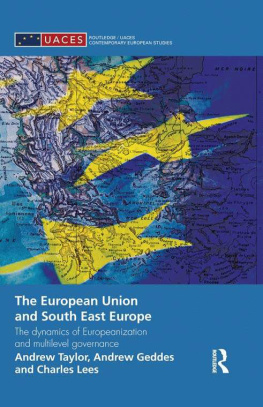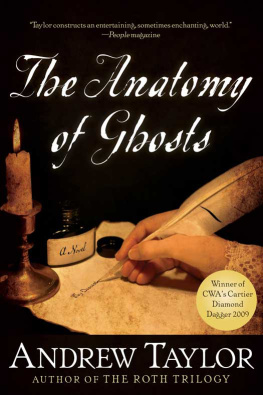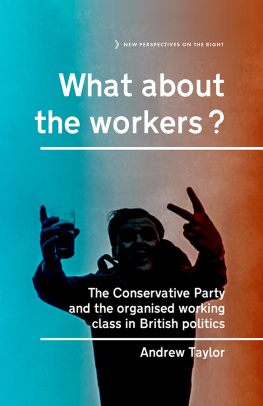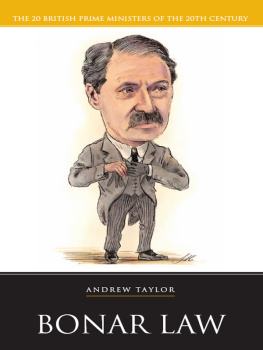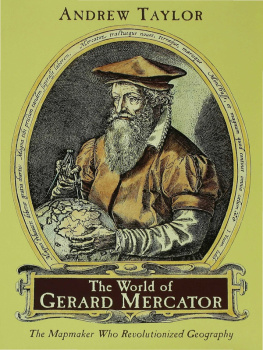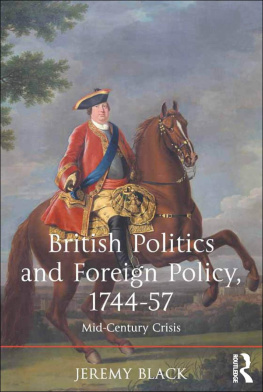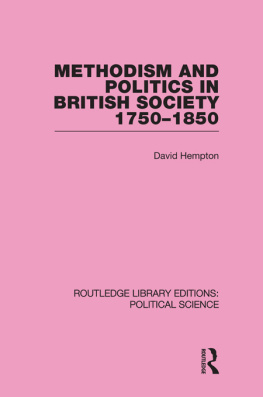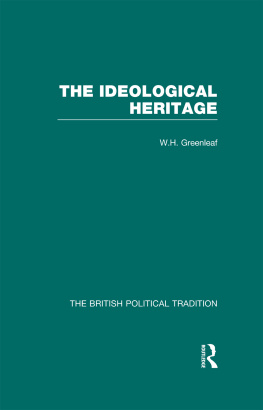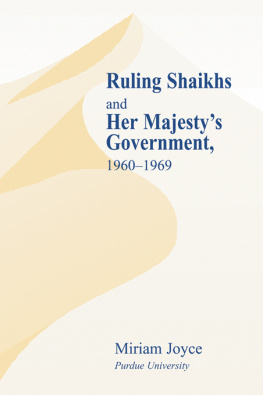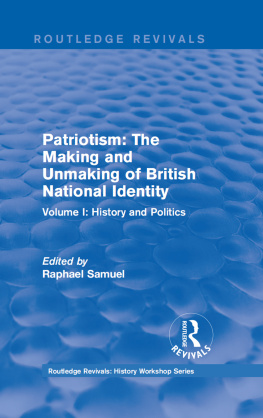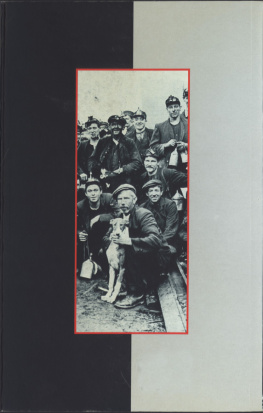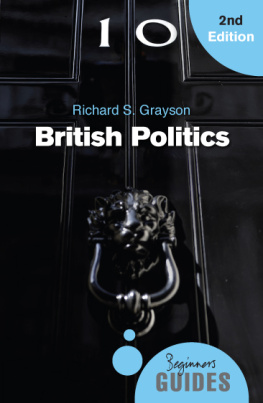THE NUM AND BRITISH POLITICS
First published 2005 by Ashgate Publishing
Published 2016 by Routledge
2 Park Square, Milton Park, Abingdon, Oxon OX14 4RN
711 Third Avenue, New York, NY 10017, USA
Routledge is an imprint of the Taylor & Francis Group, an informa business
Copyright Andrew Taylor 2005
The author has asserted his moral right under the Copyright, Designs and Patents Act, 1988, to be identified as the author of this work.
All rights reserved. No part of this book may be reprinted or reproduced or utilised in any form or by any electronic, mechanical, or other means, now known or hereafter invented, including photocopying and recording, or in any information storage or retrieval system, without permission in writing from the publishers.
Notice:
Product or corporate names may be trademarks or registered trademarks, and are used only for identification and explanation without intent to infringe.
British Library Cataloguing in Publication Data
Taylor, Andrew, 1954
The NUM and British politics
Vol. 2:1969-1995. (Studies in labour history)
1. National union of Mineworkers History 2. Coal miners
Labor unions Great Britain History 3. Labor unions
Great Britain Political activity 4. Great Britain
Politics and government 1945
I. Title
331.881223340941
Library of Congress Cataloging-in-Publication Data
Taylor, Andrew, 1954
The NUM and British politics / Andrew Taylor.
p. cm- (studies in labour history)
Includes bibliographical references and index.
Contents: v. 2. 1969-1995 ISBN 0-7546-5333-1 (alk. paper)
1. National Union of Mineworkers-History-20th century 2. Coal miners-Labor unions- Great Britain-Political activity-History-20th century 3. Great Britain-Politics and govemment-20th century. 4. Coal miners-Great Britain-History-20th century. 5. Labor movement-Great Britain-History-20th century. I. Title. II. Studies in labor history (Ashgate (Firm))
HD6668.M6152N3578 2003
331.88 122334094109045-dc21
2003045236
ISBN 13: 978-0-7546-5333-2 (hbk)
Contents
Labour history has often been a fertile area of history. Since the Second World War its best practioners such as E.P. Thompson and E.J. Hobsbawm, both Presidents of the British Society for the Study of Labour History have written works which have provoked fruitful and wide-ranging debates and further research, and which have influenced not only social history but history generally. These historians, and many others, have helped to widen labour history beyond the study of organised labour to labour generally, sometimes to industrial relations in particular, and most frequently to society and culture in national and comparative dimensions.
The assumptions and ideologies underpining much of the older labour history have been challenged by feminist and later by postmodernist and anti-Marxist thinking. These challanges have often led to thoughtful reappraisals, perhaps intellectual equivalents of coming to terms with a new post-Cold War political landscape.
By the end of the twentieth century, labour history had emerged reinvigorated and positive from much introspection and external criticism. Very few would wish to confine its scope to the study of organised labour. Yet, equally, few would wish now to write the existence and influence of organised labour out of nations histories, any more than they would wish to ignore working-class lives and focus only on the upper echelons.
This series of books provides reassessments of broad themes of labour history as well as some more detailed studies arising from recent research. Most books are single-authored but there are also volumes of essays centred on important themes or periods, some arising from major conferences organised by the Society for the Study of Labour History. The series also includes studies of labour organisations, including international ones, as many of these are much in need of a modern reassessment.
Chris Wrigley
British Society for the Study of Labour History
University of Nottingham
This book is the second of two volumes which examine the place of the National Union of Mineworkers in post-war British politics. The finishing touches to the manuscript were being made between February and May 2004, thirty years after the general election precipitated by an NUM strike which culminated in the fall of the Heath government, twenty years after the start of the 1984 dispute and twenty-five years after Margaret Thatchers 1979 election victory. Volume one examined the NUM and politics from nationalisation up to the aftermath of the pit closure programmes of the late-1950s and 1960s. This volume examines the reaction to those closures and the development of the NUMs reputation as the union that could bring down governments. This reputation influenced profoundly the relationship between the NUM and both Labour and Conservative governments and it underpinned changes in both the states approach to disputes in the coal industry and in the attitude of the Conservative Party in opposition. These changes culminated in the 1984-85 dispute which paved the way for the destruction of the industry.
Intellectually volume two follows the path set out in the Preface to volume one in that it focuses on high politics and the relationship between the NUM, the government and the National Coal Board (later, British Coal). One of the key themes of the first volume was the internal political process whereby the mineworkers tendency to fragmentation was managed. An important theme is this volume is the breakdown of this internal political process which saw the break-up of the NUM. Emerging from this, at least to my mind, is an appreciation of how fragile the NUM was as an organisation. The tensions unleashed by the pit closure programmes of the 1950s and 1960s, coupled with the nationalisation of discontent which developed under the National Power Loading Agreement, certainly had the effect of increasing (in crude terms) the NUMs power but this, in turn, led to a response. First, as mentioned above, the strikes of 1972 and 1974 encouraged the development of new ways of dealing with the NUMs disruptive potential. Second, the disputes of the early-1970s encouraged widespread political change in the NUM which undermined the accommodationist politics characteristic of nationalisation. Though successfully resisted by Joe Gorrnley between 1974 and 1981, the shift in the NUMs political centre of gravity led to the election of Arthur Scargill as NUM President on a platform very different to that advocated by any previous NUM leader.
explores the political consequences of this: the 1972 and 1974 strikes. These were two very different strikes. 1972 was widely interpreted in the media, in government, in the labour movement generally, and in some sections of the NUM as akin to a last stand. However, as a result of the mineworkers militancy, solidarity, and tactical effectiveness the Heath government was forced to surrender. The strike revealed a major and unforeseen dependency between coal and centrally generated electricity and also created a powerful syndicalist myth, that of the effectiveness of the mass picket, which was to have damaging long-term consequences. The 1974 strike should not have happened. Both the government and Joe Gormley were, albeit for different reasons, anxious not to repeat 1972 but as a result of unforeseen events, maladroit politics, and a surge in grassroots resentment in the NUM, history repeated itself. This time a government fell and the myth of the NUMs power was established.


